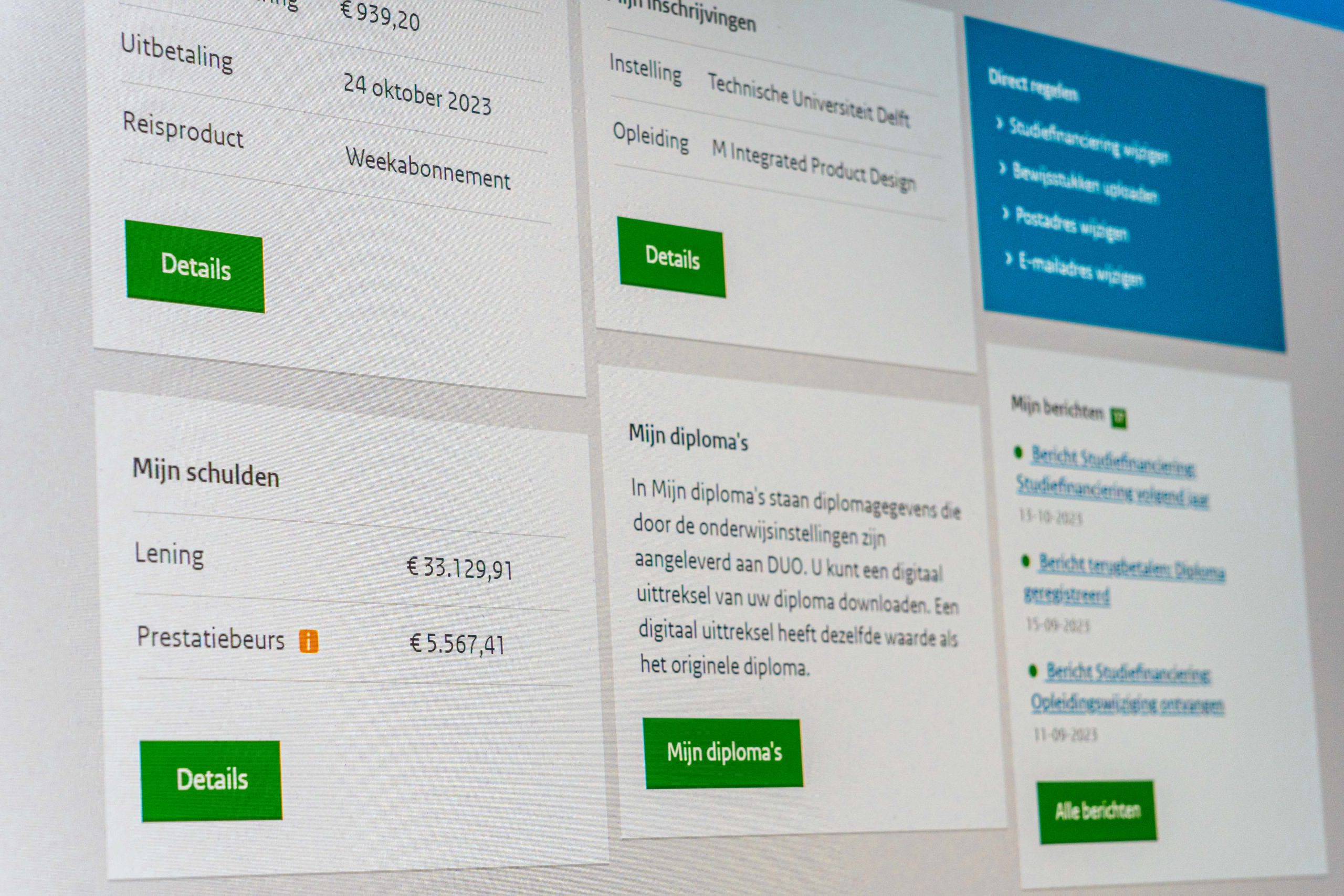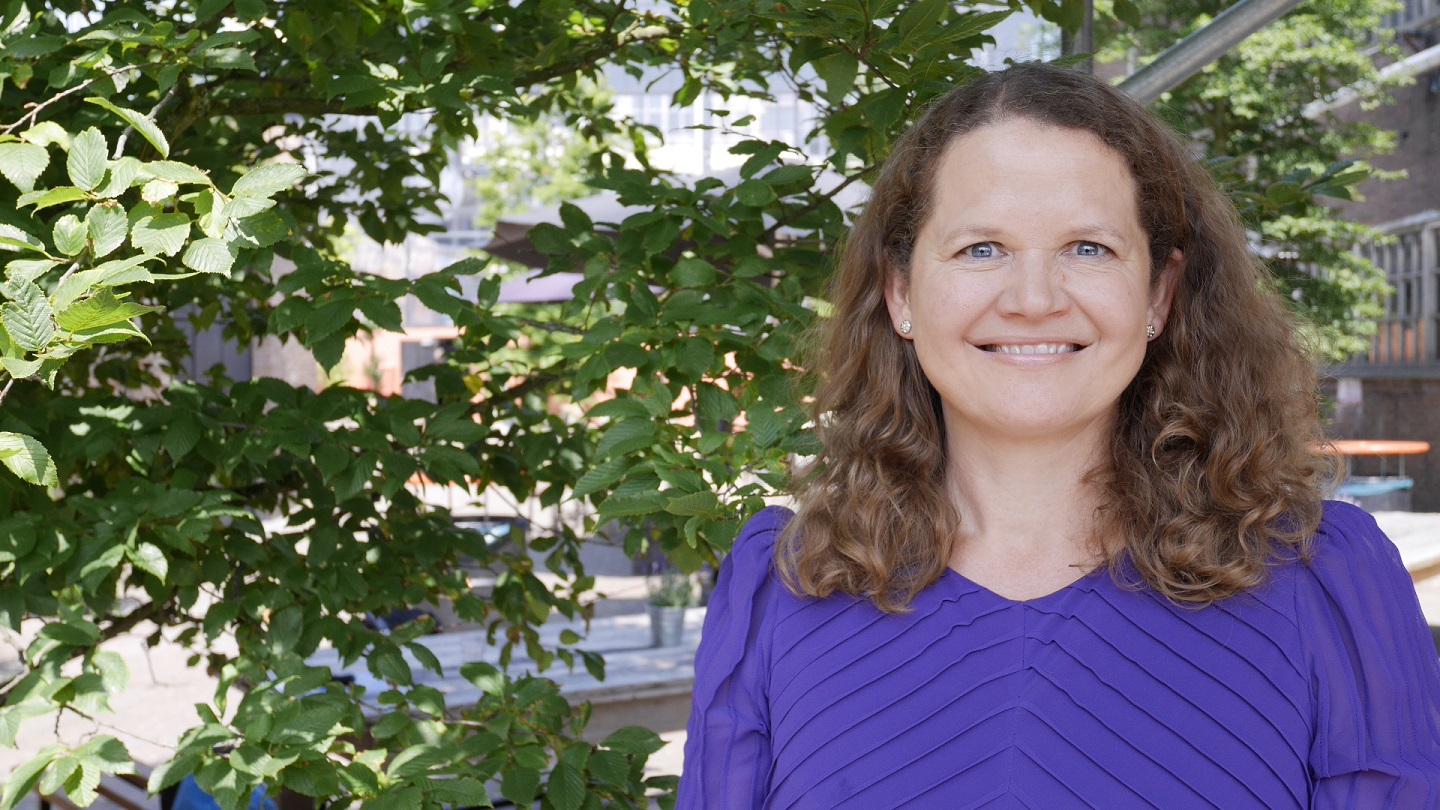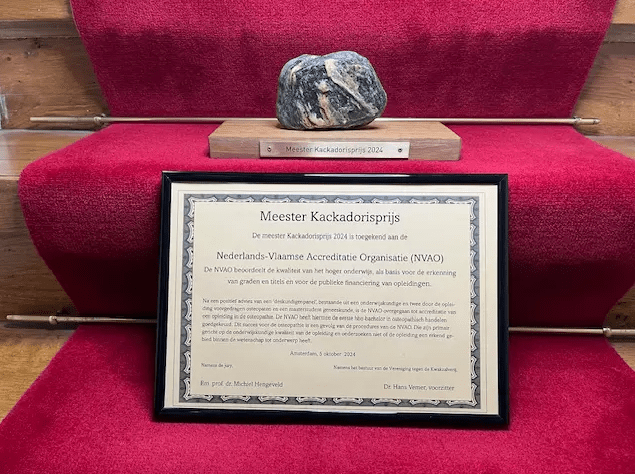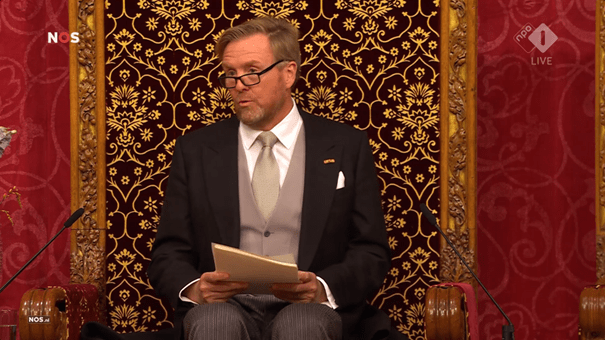Short news
TU Delft is seeking thirty experienced facilitators among its staff to lead post-performance discussions following the Mindlab theatre shows on social safety.
According to the job description, the ideal candidate is someone who can “keep the conversation on track,” “engage people who haven’t spoken yet,” “hold back people who dominate the discussion,” “ask clarifying and curious questions,” and “show empathy when someone is struggling.”
All TU Delft employees are welcome to apply, provided they are available for at least three post-performance discussions, have some experience in facilitating conversations, and can attend a mandatory training session for facilitators.
Startling conversations
Mindlab is one of the initiatives aimed at improving social safety at TU Delft. The interactive performance amplifies situations of pressure, intimidation, and inappropriate behaviour that can occur in an academic context.
Olivier Sueur, Integrity Office Manager, recently stated that the show “sets out to shock people. They then discuss the issues with each other and look at whether these or similar issues have occurred in their own situations or whether they could happen.” He believes that at least half of all staff members should participate.
SP Youth Haaglanden (SP stands for Socialist Party) hung a banner against the long-study fine (‘langstudeerboete’ in Dutch) on the fences around the tram track-in-construction on Wednesday morning 9 October. The banner did not stay there for long. At 10:45 AM, it was no longer there. TU Delft does not allow these kinds of unannounced actions. On the canvas, the SP called on students to sign a petition against the ‘langstudeerboete’.
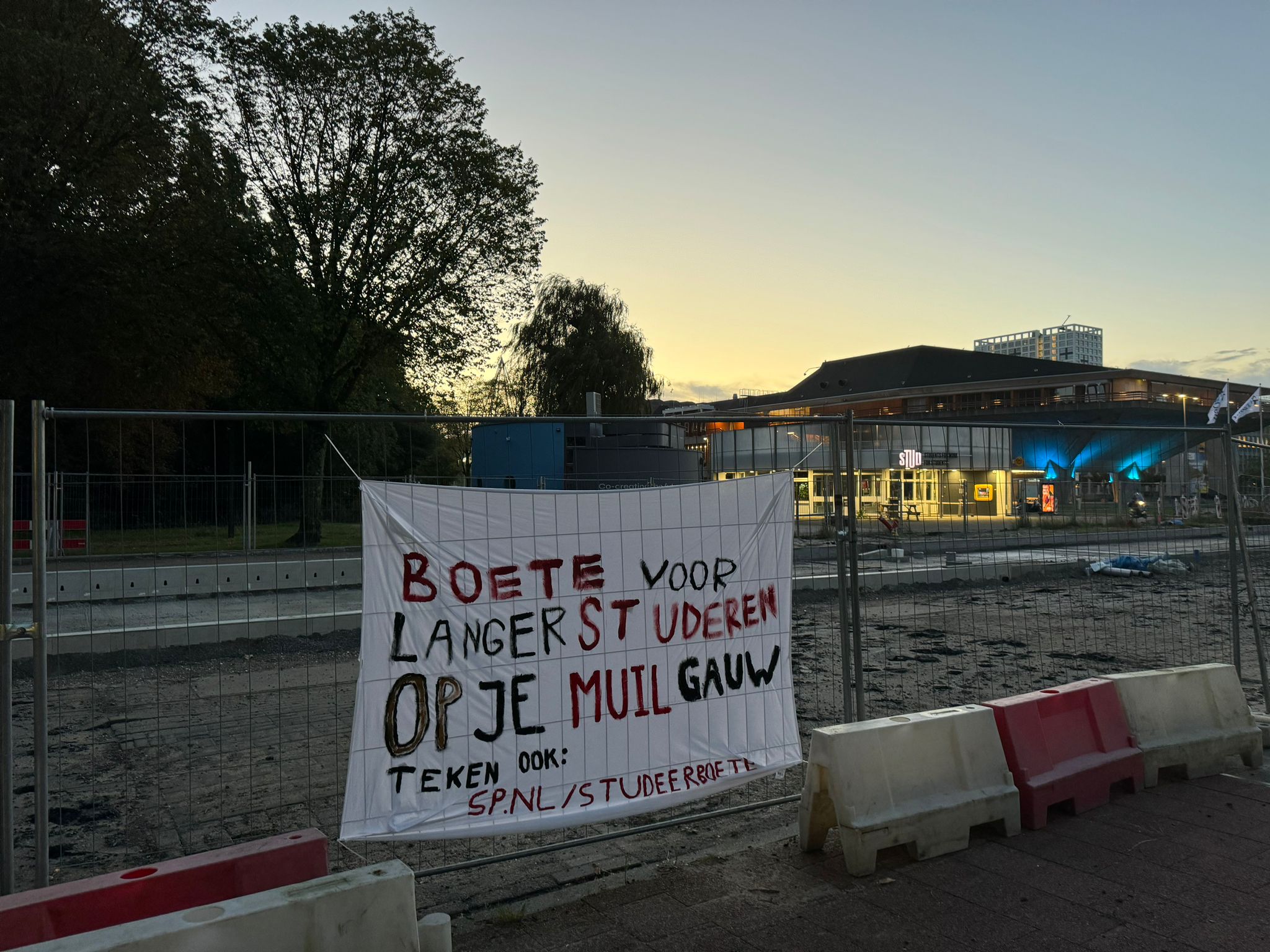
The total student debt is another billion euros higher than last year and now stands at €29 billion, data from the Statistics Netherlands (CBS) shows. Debts have risen rapidly since 2015, when the basic grant was abolished.
In particular, the debt of young people aged between 25 and 30 has gone up. It is now 24.6 thousand euros on average, some five thousand euros more than in 2021. ‘People between the ages of 25 and 30 took little or no advantage of the basic grant and could only take out a loan,’ notes CBS. ‘They have also had little time to repay.’
But the basic grant is back and that effect is already visible. Young people between the ages of 20 and 25 owe an average of 13.1 thousand euros to DUO, compared to 13.9 thousand euros last year. This amount has dropped for the first time since 2016.
Up to 10 thousand euros
There are also slightly less people with student debt: it is still more than 1.6 million, but compared to last year, there are almost 13 thousand fewer. CBS’ explanation: less students applied for loans.
About half have a debt below 10 thousand euros, while there are also 138 thousand people with study debt above 50 thousand euros. Note that these are current study debts, i.e. including those who have already almost finished repaying and are barely in debt after 15 years or so. (HOP, BB)
Ethics professor Sabine Roeser will be taking over duties from Dean Aukje Hassoldt of Technology, Policy and Management (TPM) in mid-November. She will do so in her position as deputy dean. According to a spokesperson, there is no need to appoint an interim dean as the vacancy for dean TBM can be published soon. Rector magnificus Tim van der Hagen is currently drafting the profile, partly based on a draft from the faculty’s management team.
The spokesperson assumes that the search for a successor will be successful. This would be a break with the past. Before Hassoldt was brought in in 2019, TPM had had four different (interim) deans in four years. But the faculty is in a better position now, according to the spokesperson. Rector Van der Hagen confirmed this on intranet, where he expressed his thanks for Hassoldt’s ‘energy and dedication’. ‘The faculty is in an excellent position and she can hand over TPM with confidence.’
‘Boost the bridge’
The Executive Board will ultimately decide on the appointment of the new dean, following advice from an appointment advisory committee. Then, that proposed decision is discussed with the local Workers Council (odc) and the Faculty Student Council.
Aukje Hassoldt is stepping down from her second term as TPM dean for a new job as dean of the Rotterdam School of Management at Erasmus University (EUR). For Van der Hagen, this is not a farewell, he says on intranet. According to him, the move will instead ‘boost the bridge’ between TU and EUR. Between the two organisations, the bond should become increasingly close due to TU Delft’s plans for a Campus Rotterdam. Van der Hagen reports that it is being investigated how Hassoldt can remain involved with TU Delft.
Sabine Roeser’s current positions include department chair of the Values, Technology and Innovation department. A replacement will temporarily take over the tasks involved, but details are not yet known.
For approving a bachelor’s degree program in osteopathy, regulator NVAO received the Meester Kackadoris award Saturday from the Association against Quackery. The NVAO (Dutch-Flemish Accreditation Organisation) monitors the quality of higher education in the Netherlands and Flanders.
Without approval from the NVAO, the private osteopathy training would not be allowed to award a recognised bachelor’s degree. But that approval has come.
A panel of two osteopaths, an educationalist and a medical student gave a positive recommendation and the NVAO has adopted it. Training at the private Thim University of Applied Sciences costs 9,900 euros per year. Graduates receive the title bachelor of science.
Ministry of Defense
NVAO president Arnold Jonk did not come to collect the award, but gave a written response to the association. The NVAO looks at education, but not at the “substantive merits” of programs, he explained.
The satirical award goes to people or agencies that promote quackery when they should know better. So quacks are not eligible. Other contenders this year were physician federation KNMG and the Ministry of Defense. (HOP, BB)
Master’s students Sibel Gökbekir (Technology, Policy & Management), TJ Rivera (Architecture and the Built Environment) and Pravesha Ramsundersingh (Electrical Engineering, Mathematics & Computer Science) have been nominated for an ECHO Award in the STEM category.
The ECHO Awards are presented annually by the Center for Diversity Policy with the aim of highlighting the social contributions of students from non-western backgrounds.
Winners receive a fully covered Summercourse at the University of California (UCLA). Last year, master’s student Emin Batman (Architecture and the Built Environment) won the prize in the same category.
On 5 and 6 October 2024, public activities will be held across the country to raise awareness on science and technology. You won’t see much of this on TU Delft campus.
From TU Delft, a student team and the TU Delft Science Centre will take part in activities organised by the 4TU federation at the weekend. Only they will not do so in Delft but instead in and around the AMS Institute buildings in Amsterdam and in Zoetermeer.
On Saturday, the Delft Hyperloop team will host a workshop on magnetic levitation (which will one day allow the Hyperloop to float through long vacuum tubes).
As part of the Science Centre on Tour programme, the TU Delft Science Centre will give two topics on circularity in Amsterdam: repairing electronic devices and designing jeans sustainably. In addition, in Zoetermeer the TU Delft Science Centre will give demonstrations on floating robots and cycling with VR (virtual reality) glasses.

- You can find the programme on the Weekend of Science here. (in Dutch)
The cabinet wants more attention to education and research ‘focused on what the Netherlands needs’ in higher education, the King of the Netherlands just said in the so-called Speech from the Throne.
After phrases on migration, defense and agriculture, the speech also addressed higher education. “In this, sharp choices are needed, both for substantive and financial reasons,” King Willem-Alexander said.
Dutch
“One of those choices is to reduce the number of foreign students and make Dutch the norm again in higher education,” he declared. Earlier, he briefly mentioned student migration as a problem, among other forms of migration.
This was all. The cabinet previously announced sharp budget cuts to education and research. By comparison, in the last edition of the Throne Speech, equal opportunities, discrimination and the mental well-being of young people came up. The year before that, major investments in secondary and higher education and science were announced to provide “peace and quiet.”
The king does not write the Speech from the Throne himself. The cabinet does.
HOP, Bas Belleman
The Speech from the Throne
Every year on the third Tuesday in September – known as Prinsjesdag – the King or Queen of the Netherlands delivers the Throne Speech. In it the government announces its plans from the upcoming year. Among those present at the deliverance are the ministers, members of the parliament and the royal family. (Delta, KB)

Commotion at the Mekelweg Monday evening: an excavator landed on its side there around five in the afternoon. It took about an hour and a half before the vehicle was upright again.
The cause was a maneuvering error by the driver, who remained unharmed. However, the excavator did get damaged, according to the Metropolitan Region of Rotterdam The Hague, client of the construction of the tram line for which the excavator was used.
The accident happened near the Faculty of Electrical Engineering, Mathematics and Computer Science. The bicycle bridge near the faculty was closed for some time. At the same time, at the faculty a welcome barbecue of the Electrotechnische Vereeniging, the study association of Electrical Engineering, took place.
Many spectators were the result: with a beer and a plate of food in hand, students came out to see how the excavator was hoisted back up by several cranes. Around 6:30 p.m., the vehicle was back on its feet.
The excavator is part of the arsenal of vehicles being used in the construction of the new tram line across campus. Executor of that project is the construction company Dura Vermeer.
Addition 17-9-2024 16:02: after the response of the Metropole Region Rotterdam The Hague, the second alinea was added.
- Also read our reconstruction of the events around tram 19: Waiting for the tram.



